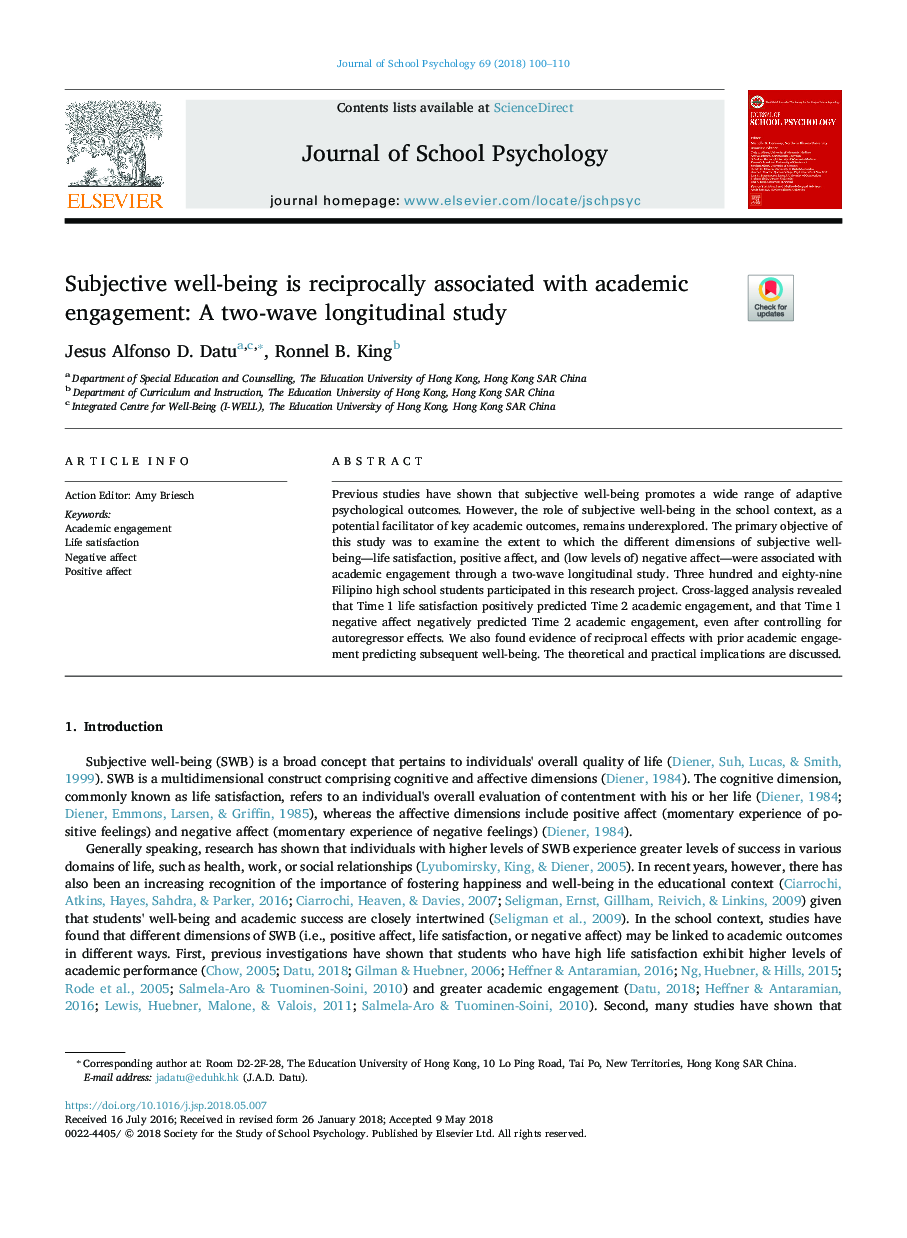| Article ID | Journal | Published Year | Pages | File Type |
|---|---|---|---|---|
| 6843713 | Journal of School Psychology | 2018 | 11 Pages |
Abstract
Previous studies have shown that subjective well-being promotes a wide range of adaptive psychological outcomes. However, the role of subjective well-being in the school context, as a potential facilitator of key academic outcomes, remains underexplored. The primary objective of this study was to examine the extent to which the different dimensions of subjective well-being-life satisfaction, positive affect, and (low levels of) negative affect-were associated with academic engagement through a two-wave longitudinal study. Three hundred and eighty-nine Filipino high school students participated in this research project. Cross-lagged analysis revealed that Time 1 life satisfaction positively predicted Time 2 academic engagement, and that Time 1 negative affect negatively predicted Time 2 academic engagement, even after controlling for autoregressor effects. We also found evidence of reciprocal effects with prior academic engagement predicting subsequent well-being. The theoretical and practical implications are discussed.
Related Topics
Social Sciences and Humanities
Psychology
Applied Psychology
Authors
Jesus Alfonso D. Datu, Ronnel B. King,
